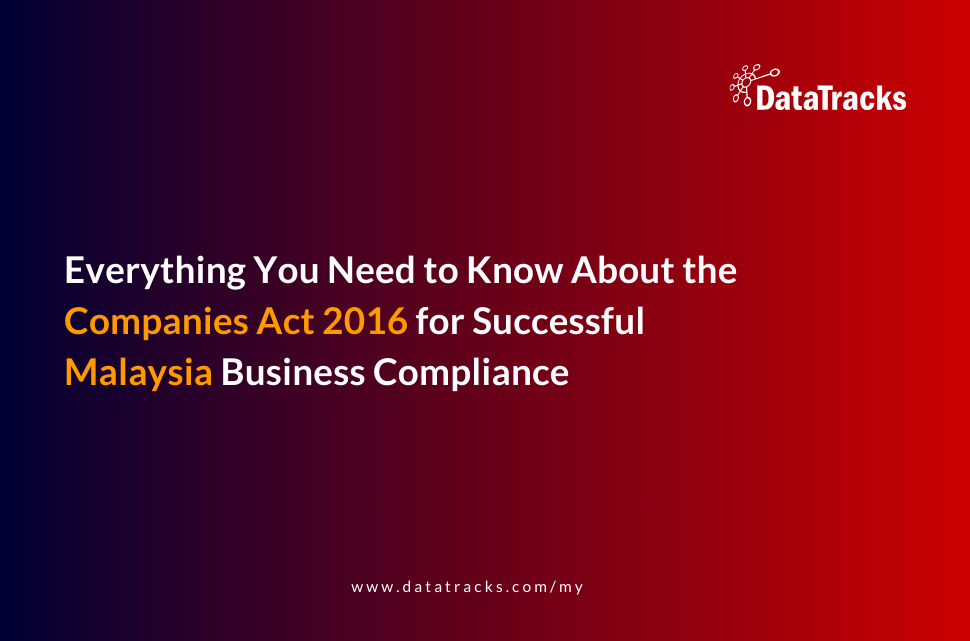Ways to Convert Financial Statements in PDF Filing to XBRL File Format
In today’s digital finance environment, companies must adapt to sophisticated reporting standards to maintain compliance and enhance reporting accuracy. Malaysian companies, whether operating under the Malaysian Financial Reporting Standards (MFRS) for public companies and their subsidiaries or the Malaysian Private Entities Reporting Standard (MPERS) for private entities, face the challenge of transforming their financial statements from traditional PDF formats to the more dynamic and structured eXtensible Business Reporting Language (XBRL).
The Securities Commission Malaysia (SSM) has incorporated a comprehensive taxonomy into the Malaysian Business Reporting System (MBRS), featuring 5,815 IFRS elements for MFRS and 2,364 elements for MPERS financial statements. This extensive list necessitates a thorough understanding of these elements when converting financial statements to ensure precision and compliance.
Preparation for Error-Free Filing: Issuers preparing financial statements in the PDF filing format need to be familiar with the MBRS taxonomy to avoid errors and ensure compliance with SSM’s filing requirements.
Ensuring Compliance: The shift from PDF filing to XBRL enables more efficient and compliant reporting, reducing errors and enhancing the timeliness of financial submissions.
XBRL Conversion – Converting PDF to XBRL File Format to comply with IFRS XBRL Taxonomy
Navigating the intricacies of financial reporting can be quite the endeavor, especially when it comes to transitioning from PDF to XBRL formats. Thankfully, there are straightforward solutions to this seemingly complex task. Whether it’s through using a dependable PDF to XBRL converter, tapping into the expertise of specialized XBRL conversion services, or leveraging powerful software solutions designed for XBRL formatting, you can prepare your financial statements accurately and efficiently.
These are a lot of elements to take care of and understand, but there are multiple ways to prepare PDF to XBRL file format reports hassle-free.
Option 1: Hire an In-House XBRL Expert for PDF to XBRL Conversion
Hiring an in-house XBRL expert provides direct control over the XBRL conversion process, from PDF to XBRL format. This approach allows for tailored handling of your financial reporting requirements, ensuring that all data is accurately represented according to the latest IFRS XBRL taxonomy.
Challenges in Finding and Training XBRL Expert
- Finding Qualified Experts: The niche expertise required for handling IFRS XBRL taxonomy can make finding the right candidate challenging. This expertise is critical for ensuring the financial statements are accurately tagged according to the XBRL file format.
- Ongoing Training: XBRL standards and taxonomies evolve, necessitating continuous learning. Ensuring that your in-house expert stays updated with the latest changes can be a resource-intensive process.
- Cost Implications: Beyond salary, the costs associated with additional benefits, workspace, and technology resources can add up, making this a significant investment for the company.
- Manual Tagging Approach vs. Outsourced Solutions
Using a manual tagging approach with tools like mtool requires more time and effort from in-house teams. This process can take several hours per financial report to ensure proper tagging, especially for complex statements. However, with DataTracks, XBRL tagging is streamlined, and the time required to tag financial statements is significantly reduced by our XBRL experts.
Solutions for Effective PDF to XBRL Conversion In-House
- Comprehensive Recruitment and Training Program: Develop a specialized recruitment process focused on identifying candidates with a deep understanding of XBRL and IFRS taxonomy. Implement an ongoing training program to keep the expert abreast of the latest developments in XBRL standards and technology, including the use of tools like the SSM-MBRS preparation tool for generating MBRS reports.
- Utilize XBRL Software Tools: Equip your XBRL expert with state-of-the-art XBRL preparation and analysis tools to streamline the reporting process. This can enhance efficiency and ensure the production of high-quality, accurately tagged XBRL financial statements.
- Cost-Benefit Analysis: Conduct a thorough cost-benefit analysis to understand the value an in-house XBRL expert brings to your financial reporting process, considering the long-term savings in outsourcing fees and the potential for higher quality, more reliable financial reporting.
Option 2: Outsource XBRL Production
Outsourcing the conversion of PDF financial statements to XBRL can be a cost-effective solution. This option leverages external expertise and technology, potentially speeding up the conversion process and reducing internal workload.
Challenges in Outsourcing XBRL Conversion:
- Quality Control: Relying on external service providers for XBRL reporting might raise concerns about the quality and accuracy of the final XBRL documents, especially considering the complexity of financial statements and the precision required for tagging.
- Communication and Coordination: Working with an external team can sometimes lead to delays or misunderstandings, impacting the reporting timeline and potentially leading to errors if not managed properly.
- Data Security: Sending sensitive financial information to third parties for XBRL conversion raises legitimate data security concerns, necessitating stringent data protection measures.
Solutions for Outsourcing PDF to XBRL Conversion
- Select Reputable Service Providers: Choose a service provider like DataTracks, known for their expertise in accurately tagging and quality-checking XBRL files. Their reputation and track record can significantly mitigate concerns regarding quality and accuracy.
- Establish Clear Communication Channels: Implement robust communication and project management protocols to ensure seamless coordination with the external XBRL service provider. Regular updates and milestones can help keep the project on track and avoid any misunderstandings.
- Ensure Data Security: Before outsourcing XBRL production, verify the service provider’s data security certifications and compliance with international data protection regulations. Establishing a secure data transfer and handling protocol is essential to protect sensitive financial information.
Option 3: Leveraging Third-Party Software for iXBRL Conversion
Third-party software solutions offer a bridge for companies to convert their PDF documents to the Inline XBRL (iXBRL) format, providing tools that automate and streamline the tagging and conversion processes.
Challenges with Third-Party PDF to iXBRL Software
Integrating data from various sources can introduce risks of inconsistencies, while the need for specific technical knowledge to manage iXBRL software can be a barrier.
- Data Aggregation Complexity: Utilizing third-party software often necessitates the consolidation of financial data from diverse systems such as accounting software, Enterprise Resource Planning (ERP) systems, and disclosure management solutions. This integration task is not only time-consuming but also increases the risk of data inconsistency and errors.
- Technical Know-How: The transition from traditional financial reporting formats to iXBRL requires a detailed understanding of the iXBRL taxonomy and format. Organizations might find it challenging to keep staff updated with the latest regulatory changes and technical requirements.
- Software Limitations: Not all third-party software solutions offer comprehensive support for iXBRL formatting and tagging. Some may lack advanced features needed for certain types of financial disclosures, leading to incomplete or non-compliant filings.
Solutions:
To overcome these challenges, it’s advantageous to select a third-party software solution that is not only robust and user-friendly but also backed by expert support services such as those provided by DataTracks. Here’s a tailored solution integrating DataTracks:
- DataTracks as the Backbone: Opt for a third-party software that seamlessly integrates with DataTracks’ services. This approach ensures that your financial data, irrespective of its source, is accurately tagged and converted into the iXBRL format. DataTracks specializes in providing expert services for preparing iXBRL financial statements, guaranteeing compliance with the latest standards and regulations.
- Automation and Expertise: Leverage the combination of automated software solutions with the expertise of DataTracks. This dual approach streamlines the data aggregation process, significantly reducing the time and effort required to prepare financial statements. Automation aids in the accurate tagging of financial data, while DataTracks’ experts ensure that the iXBRL reports are compliant and of high quality.
- Continuous Support and Training: Ensure that the chosen software provider offers comprehensive support and training options. This is crucial for organizations to stay abreast of the latest iXBRL reporting requirements and software functionalities. DataTracks distinguishes itself by offering ongoing support and advisory services, making it easier for companies to navigate the complexities of iXBRL reporting.
DataTracks – The Ideal Choice for XBRL Conversion – PDF to XBRL File Preparation
DataTracks, a global leader in XBRL services, can be the ideal partner for companies seeking to outsource their financial reporting process. The army of experts at DataTracks has 19+ years of experience in preparing XBRL reports for countries like the UK, India, Singapore, South Africa, and Malaysia. So rest assured, quality and error-free XBRL reports are the top priority. Moreover, the service provider is also offering a free XBRL pilot project. Share your financial statements in a non-XBRL format, and DataTracks will convert them into PDF to XBRL file format for FREE.
A simple and innovative solution for XBRL preparation is here. Speak to a DataTracks expert @ +60-392-126-125 or email at enquiry@datatracks.my and make your way to error-free XBRL reports!
Frequently Asked Questions on iXBRL File Format
What is XBRL Conversion?
XBRL (eXtensible Business Reporting Language) conversion involves translating financial statements and other compliance documents into XBRL format, a global standard for exchanging business information. This process ensures that data is readable and processable by various software systems.
Why Convert PDF to XBRL Format for IFRS Compliance?
Converting PDF documents to XBRL format is essential for companies that need to comply with the International Financial Reporting Standards (IFRS) XBRL taxonomy. XBRL format enhances the accessibility, accuracy, and comparability of financial data, which is a requirement for many regulatory authorities worldwide.
What is the IFRS XBRL Taxonomy?
The IFRS XBRL Taxonomy is a classification system developed by the International Accounting Standards Board (IASB) that defines the specific tags for reporting IFRS financial information in XBRL format. It ensures consistency and standardization of financial reporting across different jurisdictions.
Can XBRL Conversion Improve Financial Reporting?
Absolutely. XBRL conversion not only aids in regulatory compliance but also enhances the accuracy, clarity, and comparability of financial reports, ultimately benefiting stakeholders.
Are There Any Specific Software Tools Recommended for XBRL Conversion?
Certainly, when choosing a software tool for XBRL conversion, it’s crucial to select one that aligns with your specific business needs and complies with the latest IFRS XBRL taxonomy. DataTracks is a recommended ixbrl conversion service provider, known for its expertise and reliability in ensuring smooth and compliant XBRL conversions for businesses globally.
What are the key challenges companies face when converting PDF financial statements to XBRL format?
The main challenges include:
- Complexity of XBRL Taxonomy: Malaysian companies must map their financial data to the correct XBRL tags, based on a comprehensive taxonomy with thousands of IFRS elements. This requires expertise in both the accounting standards and the XBRL format.
- Manual Effort: Converting data from a PDF filing format to XBRL manually can be time-consuming and prone to errors, especially with large or complex financial statements.
- Ongoing Compliance: Companies must stay updated with changes in the XBRL taxonomy and accounting standards to ensure continued compliance. This requires continuous learning and potentially additional resources for training staff or hiring specialized professionals.




